Whoever thinks of agribusiness and imagines large estates producing food for Brazil’s refrigerators is gravely mistaken. What the television doesn’t tell us is that agribusiness is a form of agricultural production in which food isn’t actually produced. It doesn’t tell us that agribusiness depends on large amounts of agritoxins, and that what is produced is, in the end, exported abroad – even if public resources are used. Even worse, most land is in the hands of foreign businesses and international banks. Check out below what the real consequences of agribusiness are.
of agribusiness and imagines large estates producing food for Brazil’s refrigerators is gravely mistaken. What the television doesn’t tell us is that agribusiness is a form of agricultural production in which food isn’t actually produced. It doesn’t tell us that agribusiness depends on large amounts of agritoxins, and that what is produced is, in the end, exported abroad – even if public resources are used. Even worse, most land is in the hands of foreign businesses and international banks. Check out below what the real consequences of agribusiness are.
The soils are poisoned
Thanks to agribusiness, Brazil has been the world’s largest consumer of agritoxins since 2009. According to official figures more than a billion litres of poison have been thrown onto crops. These agritoxins
 Despite the apparent health risks, consumers know very little about what they are consuming and the industry insists that there is a "safe level" for the consumption of these substances. May 5, 2017 4:20 p.m.
Despite the apparent health risks, consumers know very little about what they are consuming and the industry insists that there is a "safe level" for the consumption of these substances. May 5, 2017 4:20 p.m.
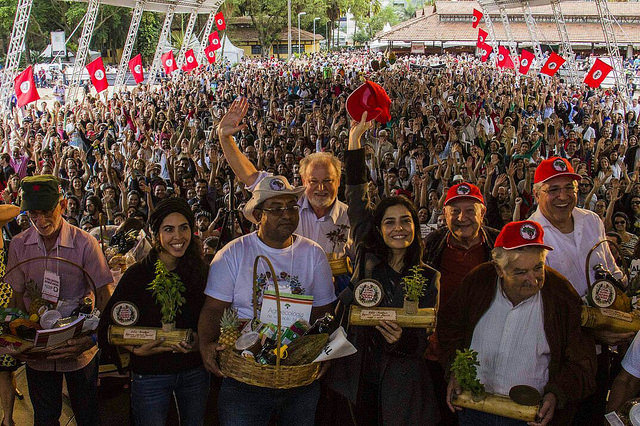 2017, became a political act in defense of agroecology and the agrarian reform. According to the Landless Rural Workers’ Movement (MST), around 10 thousand people attended the activity, which is part of the Second National Fair of the Agrarian Reform.
2017, became a political act in defense of agroecology and the agrarian reform. According to the Landless Rural Workers’ Movement (MST), around 10 thousand people attended the activity, which is part of the Second National Fair of the Agrarian Reform.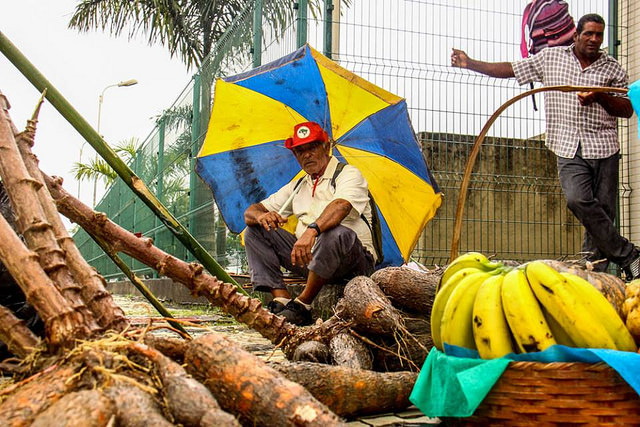
 fraudulent practices and deceptions that led to the commercialisation of GM food and crops in the US.
fraudulent practices and deceptions that led to the commercialisation of GM food and crops in the US. published in the Paraná State Official Gazette this Tuesday (November 17, 2015). The sentence rules that the company shall pay compensation to Keno’s family and to Isabel for the moral and material damage it caused.
published in the Paraná State Official Gazette this Tuesday (November 17, 2015). The sentence rules that the company shall pay compensation to Keno’s family and to Isabel for the moral and material damage it caused.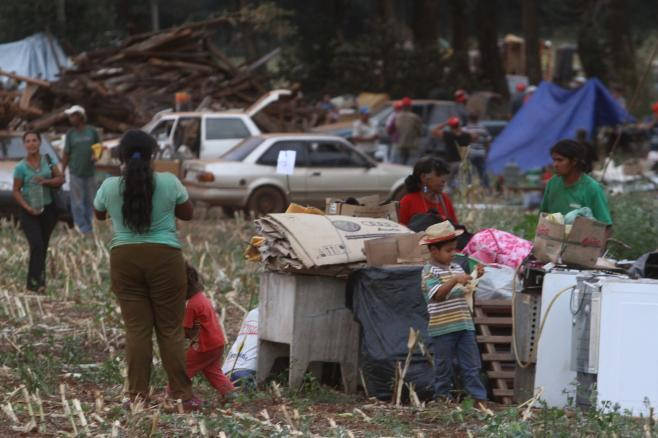
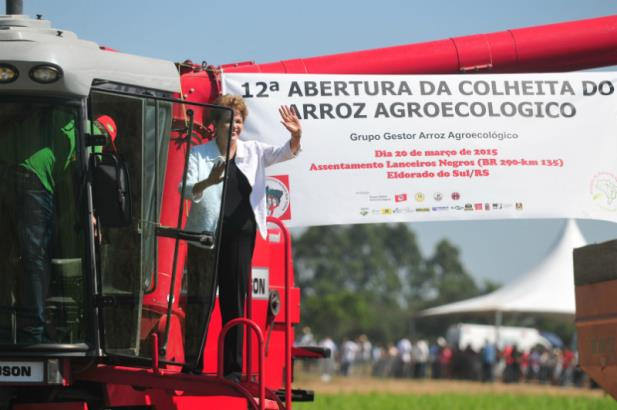 On March 20, President Dilma Rousseff attended the 12th Festival of the Agro-Ecological Rice Harvest in Integração Gaucha and Lanceiros Negros settlements, in Eldorado do Sul, in the metropolitan region of Porto Alegre (RS).
On March 20, President Dilma Rousseff attended the 12th Festival of the Agro-Ecological Rice Harvest in Integração Gaucha and Lanceiros Negros settlements, in Eldorado do Sul, in the metropolitan region of Porto Alegre (RS).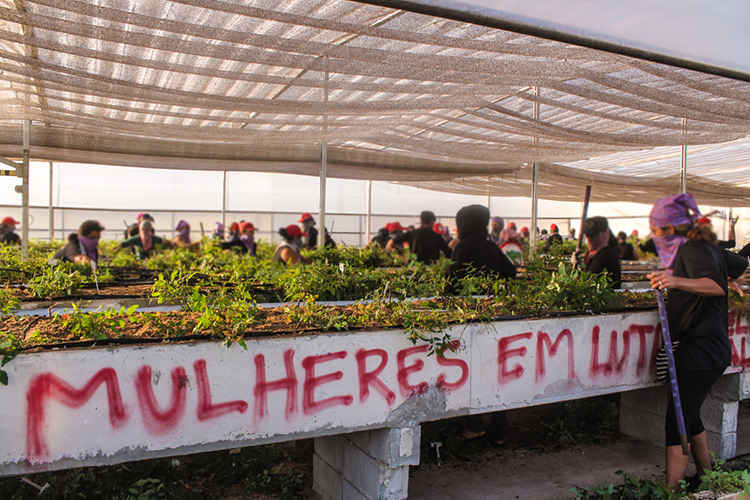 Through synchronized actions, social movements block the legalization of genetically modified Eucalyptus
Through synchronized actions, social movements block the legalization of genetically modified Eucalyptus  of agribusiness and imagines large estates producing food for Brazil’s refrigerators is gravely mistaken. What the television doesn’t tell us is that agribusiness is a form of agricultural production in which food isn’t actually produced. It doesn’t tell us that agribusiness depends on large amounts of agritoxins, and that what is produced is, in the end, exported abroad – even if public resources are used. Even worse, most land is in the hands of foreign businesses and international banks. Check out below what the real consequences of agribusiness are.
of agribusiness and imagines large estates producing food for Brazil’s refrigerators is gravely mistaken. What the television doesn’t tell us is that agribusiness is a form of agricultural production in which food isn’t actually produced. It doesn’t tell us that agribusiness depends on large amounts of agritoxins, and that what is produced is, in the end, exported abroad – even if public resources are used. Even worse, most land is in the hands of foreign businesses and international banks. Check out below what the real consequences of agribusiness are. and president of the Family Farm Defenders, a member organization of La Via Campesina. John, a fourth generation family farmer, operated a dairy farm near Lime Ridge, Wisconsin.
and president of the Family Farm Defenders, a member organization of La Via Campesina. John, a fourth generation family farmer, operated a dairy farm near Lime Ridge, Wisconsin.